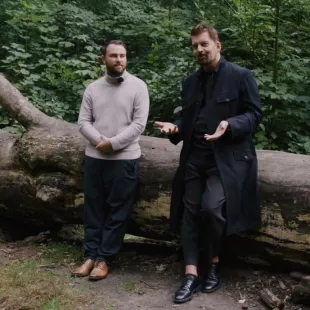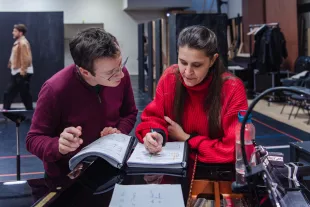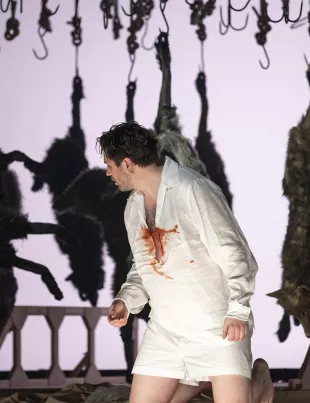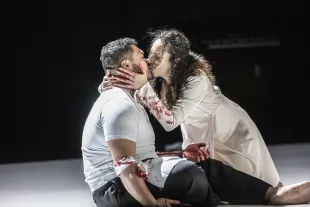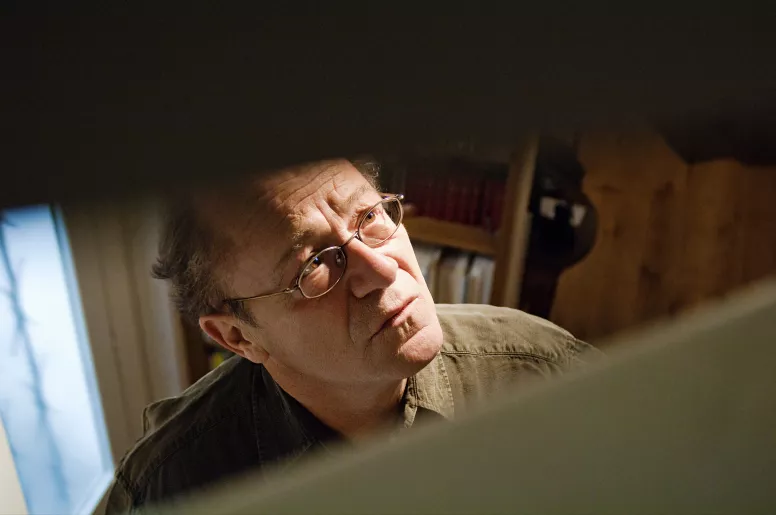
© Eric Larrayadieu
Alain Planès gave his first concert with an orchestra at the age of eight in Lyon, where he studied before entering the Paris Conservatoire in Jean Doyen's class and Jacques Février's chamber music class. He then moved to the United States to study at Indiana University in Bloomington, where he was taught by Menahem Pressler, becoming his assistant, and by György Sebök, Janos Starker, Franco Gulli and William Primrose. Along with György Sebök, he was Janos Starker's partner and toured with him in the United States and Europe. In 1979, Rudolf Serkin invited him for the first time to the Marlboro Festival, where he became one of the young seniors.
Back in France, Alain Planès became solo pianist with the Ensemble Intercontemporain at the request of Pierre Boulez. From 1981 onwards, he pursued a career as a soloist and chamber musician that took him to the greatest festivals (Festival d'Art Lyrique d'Aix-en-Provence, Montreux, La Roque d'Anthéron, La Folle Journée de Nantes, Piano aux Jacobins, Marlboro, etc.). In chamber music, he performs with Alain Meunier, Jean-Jacques Kantorov, Michel Portal, Gérard Caussé, Stéphane Degout and many others: he is a sought-after partner. In concerto, he has played with the Orchestre de Paris, the Orchestre National de France, the Orchestre Philharmonique de Radio France, the orchestras of the Opéra de Paris, La Monnaie de Bruxelles, the SWR Baden-Baden and Concerto Köln, the centuries.
Alain Planès has recorded Schubert sonatas and Debussy's complete works for solo piano for Harmonia Mundi, as well as discs devoted to Chopin, Chabrier, Janacek, Haydn, Scarlatti and Bartok. Most of these recordings have been warmly received by international critics, including the Choc de l'Année Classica for Chopin's Nocturnes on Pleyel. A live recording of La Belle Maguelone has just been released by BRecords, and has already received a tttt from Télérama.
Alain Planès has always had a passion for early instruments, playing and recording pianofortes from the eighteenth and nineteenth centuries: Scarlatti, Haydn, Mozart, Schubert and Chopin.


